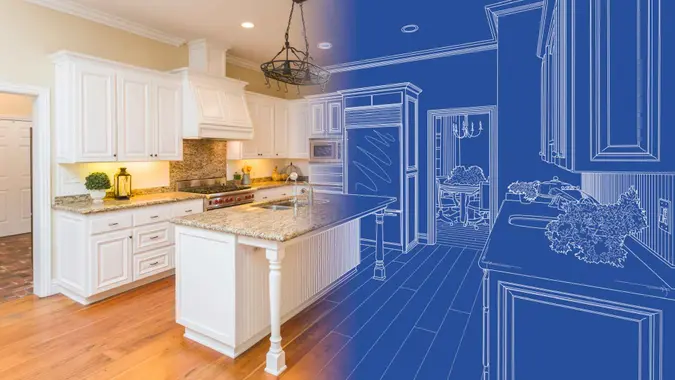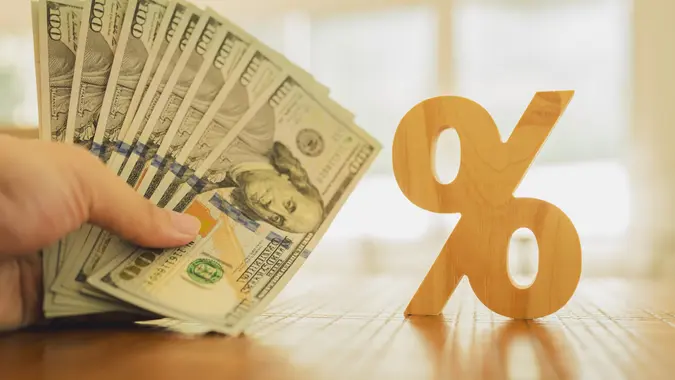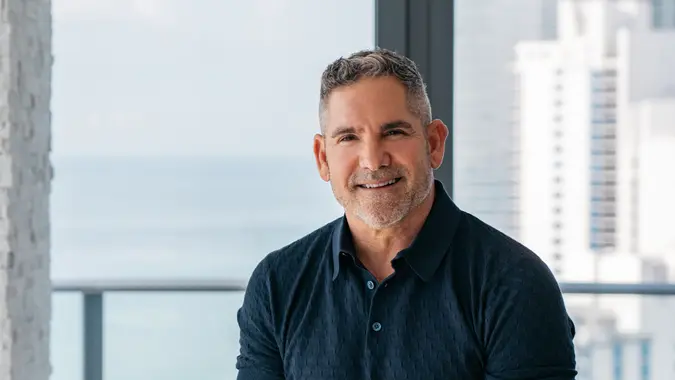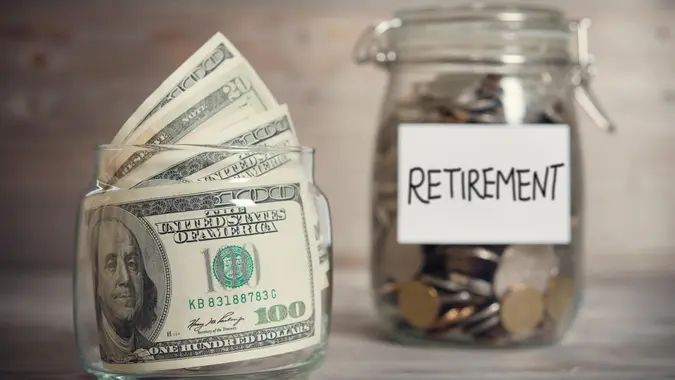Why Can’t I Save Money? 7 Possible Reasons for Savings Setbacks

Commitment to Our Readers
GOBankingRates' editorial team is committed to bringing you unbiased reviews and information. We use data-driven methodologies to evaluate financial products and services - our reviews and ratings are not influenced by advertisers. You can read more about our editorial guidelines and our products and services review methodology.

20 Years
Helping You Live Richer

Reviewed
by Experts

Trusted by
Millions of Readers
Do you ever feel like saving money is incredibly difficult? You may discover what’s holding you back could be the manner in which you are trying to save money or what you prioritize.
If you feel like you just can’t save money, there may be more than one indicator that something is amiss. These seven possible reasons could be contributing factors as to why your savings account isn’t adding up.
You Don’t Prioritize Saving
How much do you prioritize saving money? Jeffrey Jackman, wealth management advisor at Northwestern Mutual, said no one who has wealth got it randomly. Rather, Jackman said they save automatically and systematically. They do it now instead of waiting later.
Your savings might not be adding up if you keep putting it off until some later date. “People are wired to prioritize what is in front of them and what feels urgent, and saving is neither urgent nor something you might feel you need to do today,” said Jackman.
Rather than leave your savings up to chance, Jackman recommends automating all savings and investments. “Target saving 20% of your gross income toward your goals,” said Jackman. “Treat it like you don’t have a choice.”
You’re an Impulse Buyer
Impulse buys, on the surface, don’t look as though they cost too much money. You’re just grabbing a pack of gum at the checkout or adding a cute mug to your shopping cart. It doesn’t cost much money, so why worry about it?
Hong Bloom, head of customer engagement and experience at TD Bank, said impulse buying can cost consumers their hard-earned savings if they purchase various items a few times a week. While this is one of the toughest financial habits to break, it is possible to break free from the cycle.
Bloom recommends tracking your savings and spending habits on your mobile device. Create mobile alerts to better prepare yourself to be aware of low balances or overspending.
You Have No Savings Plan
You know you need to save money, but what’s the plan for your savings? Do you know what financial goals you are saving for or the type of financial foundation you wish to build if you don’t have one in place?
Natalia Brown, chief client operations officer at National Debt Relief, said it’s easier to manage your money if you know where it’s going. Brown’s recommendation is creating and maintaining a detailed budget sheet with your expenses and cash flow.
You’re in Debt
Individuals saddled with high-interest debt, like student loans, may feel as though they will never escape the weight of this financial burden let alone build their savings.
While Brown recommends paying down your debt as quickly as possible, try to aim for saving at least $1 per day. Even those in debt can commit to saving $1 a day — and this amount of money quickly adds up on a weekly and monthly basis.
You’re Forgetful
Forgetfulness can be a contributing factor as to why your savings isn’t increasing at the rate you would like. Bloom uses the example of subscription services that charge to the bank automatically. If this was a subscription you forgot to cancel, Bloom said it can be easy to forget you are losing money without noticing.
If you are forgetful, work to hold yourself accountable. “Think through each purchase on the want/need basis,” Bloom recommends. “If it is a want, is there a way to get the item cheaper?”
Lifestyle Creep Is Adding Up
Some aspects of lifestyle creep are ones you personally control, such as buying a new car as a status symbol when you have a perfectly good one already. Others are standard of living creep expenses. Max Jaffe, treasurer for TBS Retirement Planning, said these expenses are one of the biggest obstacles to saving money.
“Forty years ago we spoke on telephones which plugged into the wall, the internet didn’t exist and television was free,” said Jaffe. “Today, households are spending upwards of $500 a month to maintain these items.”
Fortunately, there are ways to curb the uptick of lifestyle creep. In addition to cutting back or cutting entirely on impulse purchases, Jaffe recommends economizing the items we buy on a micro level. Jaffe recommends using your full-sized kitchen to cook at home. Make a list when grocery shopping and stick to this list as you shop.
As for happy hour and alcohol, Jaffe said drinks can be very expensive at a restaurant or a bar. “Cutting down on the times you go out for both dinner and drinks can save a substantial amount of money,” said Jaffe.
You’ve Had Bad Luck
Sometimes, despite our best efforts to save, a string of bad luck can set us back. Life can deal us a particularly rough hand, whether it means using emergency savings during a natural disaster, receiving an unexpected veterinary bill for a furry friend or requiring medical attention we did not anticipate.
Bloom recommends giving yourself a little grace in a situation where there is bad financial luck. However, it’s important not to let these setbacks deter you from reaching your overall financial goals.
Continue sticking to your budget and tracking expenses as well as savings. If possible, Bloom recommends taking advantage of available discounts and negotiating to receive better, or lower, promotions on items such as a phone or internet bill.
More From GOBankingRates
 Written by
Written by  Edited by
Edited by 

























